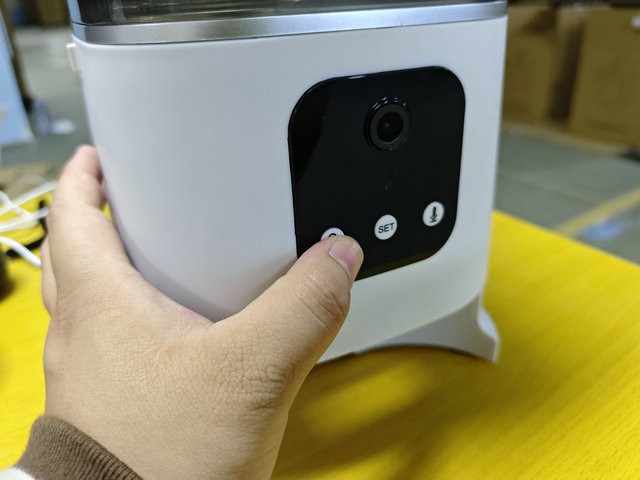
In today’s globalized market, many businesses source their products from overseas factories to capitalize on cost-effectiveness and diverse manufacturing capabilities. However, managing product quality from a distance can be challenging due to geographical and cultural barriers. To address this issue, third-party inspection companies have emerged as valuable partners for businesses seeking to maintain stringent quality standards for their products manufactured abroad. This article explores the role of third-party inspection companies in helping clients control the quality of products produced in overseas factories, along with the benefits they bring to the clients.
The Role of Third-Party Inspection Companies
Third-party inspection companies act as independent entities that conduct quality control checks on behalf of their clients, providing an unbiased evaluation of the products’ compliance with specified standards and requirements. They play a critical role in bridging the gap between the client and the factory, ensuring that the products meet the desired quality levels before they are shipped to their final destination. Here’s how third-party inspection companies assist clients in controlling product quality in overseas factories:
1.Factory Audits and Qualification
Before commencing production, third-party inspection companies conduct thorough factory audits to evaluate the factory’s capabilities, manufacturing processes, quality management systems, and overall adherence to industry standards. This step ensures that the factory is qualified and capable of producing the client’s products to the desired quality level.
2.Pre-Production Inspection
At the beginning of the production process, third-party inspectors perform pre-production inspections to check the materials, components, and production plans. This helps identify any potential issues early on, allowing the factory to rectify them before mass production begins.
3.During Production Inspection
During production, third-party inspectors make periodic visits to the factory to conduct in-process inspections. They assess the product’s quality at different stages, verify compliance with specifications, and address any emerging concerns promptly. This real-time monitoring helps prevent deviations from quality standards and allows for necessary adjustments to be made promptly.
4.Pre-Shipment Inspection
The final stage of the inspection process is pre-shipment inspection, where a comprehensive examination of the finished products is conducted before they are shipped. Inspectors verify that the products meet all agreed-upon requirements, including design, functionality, appearance, and packaging. Only products that pass this inspection are authorized for shipment, minimizing the risk of substandard products reaching the client.
5.Sample Testing and Laboratory Analysis
In addition to visual inspection, third-party inspection companies may also conduct sample testing and laboratory analysis of product samples. This ensures that the products meet specific technical standards, safety regulations, and performance criteria, providing an extra layer of assurance to clients.
Benefits of Third-Party Inspection for Clients
Engaging third-party inspection companies to control the quality of products produced in overseas factories offers numerous benefits for clients. These advantages extend beyond mere product quality and have a positive impact on the overall business operations. Let’s explore the key benefits:
1.Quality Assurance
The primary benefit of third-party inspection is the assurance of product quality. By conducting impartial and rigorous inspections, these companies help clients receive products that meet their quality standards consistently. This, in turn, fosters customer satisfaction, enhances brand reputation, and builds customer trust in the client’s products.
2.Risk Mitigation
Overseas manufacturing comes with inherent risks, including language barriers, cultural differences, and potential misunderstandings. Third-party inspection companies mitigate these risks by acting as a reliable intermediary between the client and the factory. They help ensure that the production process adheres to the agreed-upon specifications and prevents costly quality issues and disputes.
3.Cost Savings
While some businesses may consider third-party inspection an additional cost, it often leads to cost savings in the long run. By identifying and rectifying quality issues early in the production process, companies can avoid expensive rework, product recalls, and potential legal liabilities that may arise from distributing defective products.
4.Time Efficiency
Third-party inspection companies are equipped with the expertise and resources to efficiently conduct inspections and provide timely feedback to the factory and the client. By expediting the quality control process, businesses can reduce lead times and bring products to market faster.
5.Supplier Accountability
Engaging third-party inspection companies encourages overseas factories to be more accountable for their production processes and product quality. Factories understand that an independent entity is evaluating their performance, which incentivizes them to maintain higher standards and comply with the client’s requirements.
6.Compliance with Regulatory Standards
Different countries have specific regulatory requirements regarding product quality, safety, and environmental standards. Third-party inspection companies help clients ensure that their products comply with these regulations, reducing the risk of legal consequences and market entry barriers.
Conclusion
In conclusion, third-party inspection companies play a vital role in helping clients maintain control over the quality of products produced in overseas factories. Through comprehensive audits, inspections, and testing, these companies ensure that products meet the desired quality standards and comply with regulatory requirements. Engaging third-party inspection services brings a plethora of benefits, including quality assurance, risk mitigation, cost savings, and enhanced supplier accountability. By forming strategic partnerships with reputable third-party inspection companies, businesses can confidently navigate the challenges of overseas manufacturing and deliver high-quality products to their customers worldwide.





